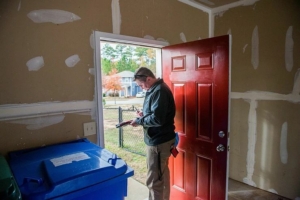Common Renovation Mistakes and How to Avoid Them

Renovating is one of the biggest ways to add value back to your home while correcting issues that could cost you big time if you left them alone. Unfortunately, not every renovation project goes off without a hitch.
Whether you’re correcting issues you’ve known about for years or you’re renovating your first home right after buying it, problems and mistakes lurk around every corner.
These are some of the most common renovation mistakes and how you can avoid them.
Going for Cheaper Products to Save Money
Although it’s always exciting to save as much money as possible, it’s not always the best long-term plan. Going for cheaper products to save money is nice now, but when you get a home inspection, and they find out you used a screwdriver and zip ties instead of installing hurricane ties, your profit is going to fall significantly.
Make sure that everything you do is above the board and will work for at least twenty to thirty years. You want to make a home that you’d be willing to give to your children.
Forgetting to Plan for the Future
There are tons of renovations that can make a huge profit now but aren’t as important as the long-term ones. For instance, you could invest in doing a major kitchen remodel, but you’ll get a higher return on investment and better security in the future if you instead do a mini kitchen remodel and then replace the garage door with the leftover funds.
Although this can be frustrating, especially when you want to make everything big and beautiful right now, it’s important to focus instead on making the home functional and safe.
Avoiding Simple Steps Towards Energy Efficiency
Many people think energy-efficient housing isn’t anything they need to worry about or that it’s a scam: but when you see the difference in your energy bill after the changes, your mind will be changed as well. Making your home as energy efficient as possible will give you a chance to help the environment, have lower monthly bills, and improve your property’s value.
You can do this by updating your siding, regardless of whether you’re weighing between aluminum and vinyl siding or not, and making sure all windows and doors are properly sealed. If there’s an air leak, correct it as soon as possible. Insulating and replacing an older roof can also make a significant difference.
DIY-ing More Than You Can Handle
DIY is a fantastic way to save money and get hands-on experience in the smaller projects throughout your property. Unfortunately, if you DIY more than you can handle, you’ll end up costing yourself a lot of money and time, resulting in you having to hire contractors to complete the job anyways.
Get to know your skill level, and be honest with yourself. Being able to name multiple types of drywall corner beads doesn’t mean you’re suddenly ready to remove and install siding on your own. Don’t bite off more than you can chew.
Forgetting Necessary Permits or Permission
It’s easy to get swept up in the excitement of making your dream home come true, but it’s important to stop and check any rules, ordinances, or laws that might not allow you to complete the project you want to start. Check locally if you need a permit for specific changes, and then check with your HOA as well.
HOAs are fantastic for property value, but they can also quickly become a nightmare if they have to use or fine you to take down changes you’ve made to your property. People have lost their property as a whole by dismissing what an HOA has said.
Hiring Contractors and Inspectors Without Reviews
It’s easy to think you know what you’re doing when you hire a contractor. They have to be good, right? They have all the equipment and an official website: so they must be legitimate.
Unfortunately, this isn’t true, and almost anyone can call themself a handyman or contractor without much issue. Don’t hire someone that you can’t find reviews or references for. Just because they’re affordable doesn’t mean they’re the right fit for your property.
This is also true when it’s time to hire a high-quality home inspector to see what projects you need to complete. Work with someone you can respect, and avoid taking a gamble.
Forgetting to Set a Realistic Budget and Timeline
The ideal job would be completed in one day on a budget of $25, but that’s just not feasible for most projects. Before you spend any money or hire someone, you must stop and plan ahead. How soon do you need this project completed? How much money are you willing to spend on it?
Setting a clear deadline and budget will help you avoid overspending or rushing a job that needs more time. This timeline will also protect you from drawing out a one-month project over the course of several months or years.
Everyone Makes Mistakes: You Can Avoid These
Whether you’re trying to save money and end up cutting corners, or you’re passionate about form but forget how important the materials are: mistakes happen easily during any renovation. Now that you know about these, work with a professional like a home inspector, and you will avoid more errors in the future!
Brian Jeffries is a freelance writer that loves sharing his knowledge and expertise on construction projects and materials. He lives in Winter Park, Florida where he enjoys spending time with his wife and working on projects in his spare time. Brian’s work as a freelance writer can be found on Building Product Advisor, a construction industry resource site.

























